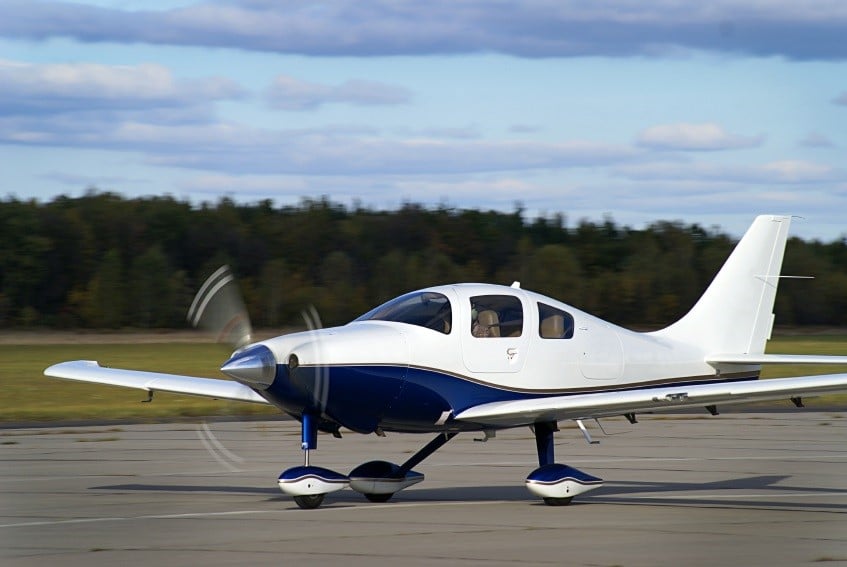Mandatory Aviation Insurance: General Aviation Pilots Should Carry Liability Insurance to Promote Safety
Aviation safety improvement advocates are encouraging the Federal Aviation Administration (FAA) to insist that all pilots, including general aviation pilots, carry some type of liability insurance. General aviation pilots, which include those who fly small, private planes and/or corporate jets, are not held to the same standards as commercial airlines for liability insurance requirements. As a leading world nation we should set the standard for what are acceptable practices for general aviation pilots that will keep everyone safe and ensure better quality pilot training, but unfortunately we do not lead the pack in this important area of travel.

Canada Leading the Pack
Currently, Canada has the most comprehensive and equitable mandatory insurance system because they have factored in the economic viability of the aircraft with a specific insurance amount that correlates with the number of passengers aboard the operated flight. Smaller aircraft are mandated to carry the necessary minimum required insurance at a reasonable value while ensuring that every passenger will be protected. In addition, an aircraft operator can choose to subscribe to a combined single-limit policy and the insurance amount is based on the maximum takeoff weight (MTOW) in pounds per plane.
Recent incidents like the death in June of Richard Rockefeller, who crashed a single-engine airplane in a residential area of Westchester County, NY, bring to the surface important general aviation concerns such as why general aviation pilots are not held to the same federally mandated standards as large commercial airlines that share the same skies, when it comes to liability insurance?
General Aviation Accident Rates Speak for Themselves
Part of this is due to the cost of carrying a minimum amount of insurance, but the results of not having to follow a mandatory standard speak for themselves: The National Transportation Safety Board (NTSB) reports that 94 percent of fatal aviation accidents that occurred in 2011 were in general aviation, which includes private small planes flown by amateurs and professionally piloted corporate jets. These types of aircraft overall have continued to have a higher accident rate compared to large commercial airplanes. The NTSB reports that about seven accidents per 100,000 flight hours occur for a general aviation aircraft whereas, an average of 0.16 accidents per 100,000 hours occur for commercial airlines.
If the FAA mandated that all general aviation pilots carry liability insurance, they would then be forced to meet the training requirements set forth by the insurance companies. In order for the insurer to be willing to take on the risk, they would require more rigorous guidelines for the minimum number of flight hours and training for the pilot. This would lead to in-depth training practices, continued certification requirements as well as setting a safety standard that all pilots would have to maintain.
General Aviation Accident Case Examples Tell the Story
The lack of federally mandated aviation insurance for small aircraft is causing heartbreaking scenarios to occur:
- Art and Jean Pogrell were invited by Michael McCartney to fly to dinner. McCartney owned the twin engine MU-2, turbo prop in a trust. He didn’t purchase insurance. The plane crashed shortly after takeoff from Hillsboro, Oregon, and all occupants were killed. Neither family was compensated for their loss.
- The Grimson family was enjoying much-needed time together on the beach at beautiful Bimini, Bahamas. Mrs. Grimson was holding her four-year-old son and watching her husband swim when a US-registered twin engine plane buzzed the beach hitting a light pole. During the crash sequence the little boy and his mother were doused in aviation fuel which ignited and caused both to suffer serious burns. The pilot of the plane had no insurance. The Grimson family had to cope with their injuries on their own.
Without federally mandated insurance regulations, disastrous consequences like these will occur as a result of general aviation accidents. The general aviation attorneys of Slack Davis Sanger believe in a better solution. With more than 20 years of experience representing families affected by airplane accidents, we know that victims of a small aircraft incident can benefit from minimum insurance coverage. By offering pilots affordable insurance premiums, everyone can feel safer. For more information on mandatory aviation insurance and how to advocate for overall aviation safety, contact the aviation lawyers of Slack Davis Sanger at www.slackdavis.com or call 800.455.8686.
